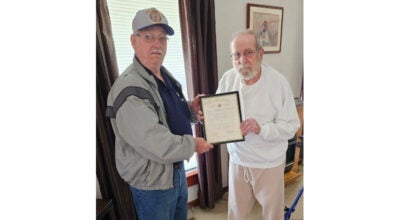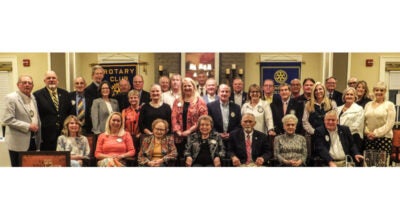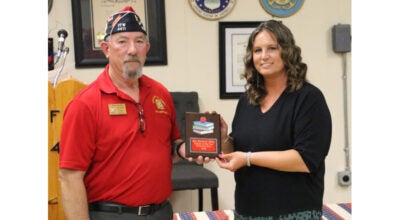What really is essential?
Published 7:46 am Wednesday, January 13, 2021
|
Getting your Trinity Audio player ready...
|
By Charles Qualls
As the pandemic settled in among us last March, our world was suddenly ablaze with talk of “essential workers.” The terminology was not unique to that viral crisis. Most of my life, snow or ice days, for instance, have caused state and local governments to call in essential workers while all other offices were closed briefly. Last year, though, that phraseology became embedded in our collective conscience.
Soon, we understood just how essential those intended workers were. We celebrated and prayed for them. Through the months, we have kept on praying for them, such as first responders, doctors, nurses, utility and other government employees. Our awareness of how we depend upon them became so great. These neighbors were placing their own health at risk in order to do their jobs. Day after day, they showed up. We are more than grateful to them.
We stand nearly a year later, reflecting still on a strange and isolating time that has not ended. Yet another layer of insight sneaked up on us somewhere in the fray. This oddball era featured not only the COVID-19 pandemic, but also civil unrest and cultural upheaval. We are still winding our way through an electoral cycle that has been more than contentious. We are a divided people, yet because of the timing we are also an isolated people.
Matthew 6:25-34 challenges our perspective. As you read, you’ll recognize the beautiful and comforting words that Jesus spoke just on the back end of the Beatitudes. He began to teach on some practical matters that were vital. We hear him say, “Therefore I tell you, do not worry about your life, what you will eat or what you will drink, or about your body, what you will wear. Is not life more than food, and the body more than clothing?” So many walk away having drawn the conclusion that he suggests we simply not worry, and maybe even don’t strive or work. I would suggest they are missing his point.
Verses 33-34 seem to be what he was driving toward. “But strive first for the kingdom of God and his righteousness, and all these things will be given to you as well. So do not worry about tomorrow, for tomorrow will bring worries of its own. Today’s trouble is enough for today.” Jesus was not suggesting that we stop work or pulling our fair share. I think he even understood that, try as we may, we will worry from time to time. Instead, what he was prescribing was that the things of God should shape and guide our living. Then, all the other would (and should) fall into place behind the things that are central to God’s kingdom.
If we have been paying attention at all during the last year, we have been challenged to reassess what really is essential. Maybe who is essential. What I hope we concluded was that ultimately, everyone is essential.
Simon Sinek has said, “The one lesson that is essential for living in right relationships with one another is to learn to listen to one another.” But in this nearly wireless age, we hardly look at one another. We generally seem to listen even worse. Well, among other things we got forced to listen to one another during the pandemic. Families, mine and some of yours, have had loved ones in the hospital. Some of us have lost loved ones in this time, and we couldn’t even visit them as they neared death.
This time we’ve been through has caused us to reset what we’ve spent our time and energy doing. It’s forced us, perhaps permanently or maybe only for a season, to go about things differently. We’ve quickly learned that either you give in to the isolation — the separation — or you rewire your ways, so that you take charge of your own relationships and well-being.
This pandemic and all the other oddities we’ve been through are trying to get our attention to remind us of one important thing: We’re all essential. Henri Nouwen once said, “We need to find a way to focus on the utterly essential as opposed to the merely important.” Jesus told a parable that suggested something similar.
We lose so much of ourselves not only in things that don’t matter over the breadth of time, but things we hardly even think about. We just do things almost on autopilot. Bad though they have been, maybe the hardships of this last year will continue to teach us. If we pay attention, we may emerge better people.
THE REV. DR. CHARLES QUALLS is the pastor of Franklin Baptist Church. Contact him at 757-562-5135.





